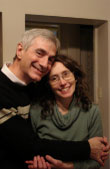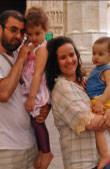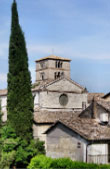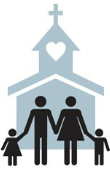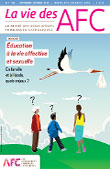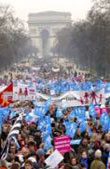«
There are many questions today in the field of education and they touch many aspects, and the first of these are certainly raised by the parents. These questions can lead them to have doubts about their ability to give their children an education, while they are their first teachers, although they are not the only ones. In the face of these doubts, different political attitudes are possible: replacing the parents with structures that take charge of the education, or trying to support them, by promoting skills. The Chantiers-Éducation (Construction Sites - Education) respond to this second determination». This is explained by Antoine Renard, President of the National Confederation of Catholic Family Associations (Cnafc), in his illustration of the goal of these groups of parents, who share their experiences and ideas, and make their educational contribution in a society that has an ever greater need of independently organized and creative lay people. A model of family support that has proven to be successful, to the point that two of the major French institutions have officially recognizes its importance. If, on the one hand, the Ministry of Education has signed a framework agreement with the Cnafc, legitimizing the excellent results obtained in preventing school failure, on the other hand the Ministry of Labor and Solidarity has for a long time already been counting on the participation of the “Chantiers” for initiatives such as Reaap (Networks of listening, support and guidance for parents), established and promoted by this same organization.
Created informally in 1990 by four mothers and then developed within the Cnafc, the “Chantiers” are now a reality that is represented in France by 630 different groups covering all types of parents: those of young people, those of teenagers, those with handicapped children, and the elderly— those who have become grandparents. Each “Chantiers” is composed of 8-10 mothers of families with one or more children under the age of 20. The fathers, however, who generally are more reluctant to talk about their experiences, have the special task of preparing the meetings. «But the work as a couple—notes Antoine Renard— when it is possible, is very positive. It permits very fruitful reflections on the role and importance of each person in the marital relationship and about what gives it texture, qualities that the children perceive».
The fundamental elements then are the presence, in each group, of a representative—who ensures the unity of the participants and the educational references—and a facilitator—who directs the discussions on the topic proposed for a particular day. A variety of issues is addressed, for example the relationship with the school, the father’s role, affective and sexual education, and the transmission of faith. Finally, the positive effects of the “Chantiers” on the parents should be highlighted: the first among these is certainly represented by the relativizing, by dramatizing, of problems and obstacles that are recognized as common to all; and secondly, notably for mothers (especially single mothers), who see their isolation broken thanks to the general appreciation for the educational work accomplished, without any longer laying the blame for the relational difficulties of working mothers with their children on their professional activity.
Card
Education? An open Construction Site
Category: Social, political and cultural engagement
Field of experience: National Confederation of Catholic Family Associations (CNAFC)
Country: France
Cnafc: 28 place Saint-Georges, 75009 Paris (France)
Phone. +33 (01) 48788161
Fax +33 (01) 48780735




